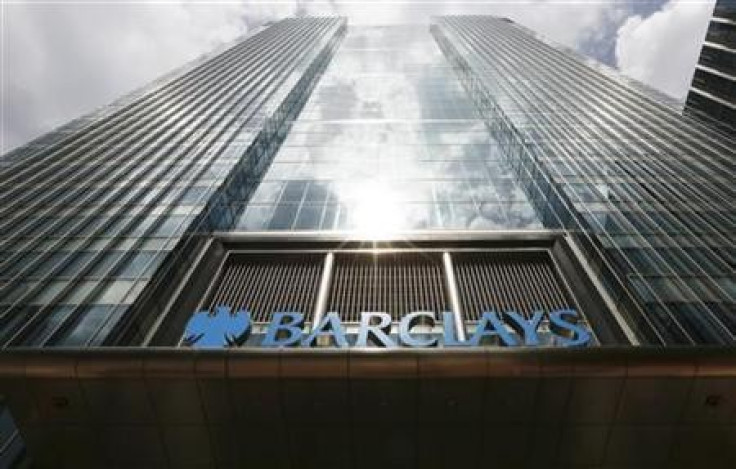Barclays to Axe Controversial Structured Capital Markets Unit

Barclays will close a controversial tax division in order to distance itself from reputational damage as it prepares to detail billions in cost cuts and thousands of job losses following its full-year results.
Barclays CEO Antony Jenkins will announce the closure of a division called structured capital markets (SCM), the bank's small but highly profitable unit that provides corporate tax services for clients, when he delivers the bank's strategy review at London's Royal Horticultural Hall just hours after its 2012 results Tuesday.
"We are also closing our structured capital markets tax-related business unit. There are different components to the tax services that we have provided clients historically. Many of those are not controversial - delivering value as part of real client transactions - and we will continue to provide such services," he will say, according to extracts from his remarks seen by IBTimes UK.
"However, there are some areas that relied on sophisticated and complex structures, where transactions were carried out with the primary objective of accessing the tax benefits. Although this was legal, going forward such activity is incompatible with our purpose, and incompatible with the new tax principles which we are publishing today. We will not engage in it again. We get it. The old ways weren't the right way to behave nor did they deliver the right results -for banks themselves or for wider society. There must be a new approach for a new era of banking. Banks that fail to change will become failing banks. My message is that Barclays is changing," he will add.
While it is not confirmed how many people currently work in SCM, in a video interview with the BBC on Sunday, ex-Barclays CEO Martin Taylor said at the time of his employment in the mid-2000s, SCM employed just 100 people and yet made up to £1bn a year in profit.
The SCM unit, which many investment banks also have in place in order to tax plan for clients, is also responsible for building a network of almost 300 offshore tax-haven subsidiaries.
This led to the controversy over Barclays only paying £113m of UK corporation tax in 2009, despite profits of £4.6bn. The ex-head of SCM Roger Jenkins (no relation to Antony Jenkins) received as much as £40m a year from the unit's success.
Plans to substantially change to the bank's structure and culture were referenced by both Jenkins and Barclays Chairman Sir David Walker when they met met with the Parliamentary Commission on Banking Standards last week.
"In each area we have considered what we want to achieve and how we intend to do it. We have broken the bank down into 75 business units and examined both their potential to generate sustainable profit and their ability to inflict reputational damage. It has been the most fundamental and complete review of any bank's operations. It will set out what we will and will not do in the future," said Jenkins in an op-ed printed in the Telegraph newspaper.
Media reports have also reported that this will contribute to 2,000 jobs that will be axed globally and will lead to a £2bn cut from its annual cost base of £20bn as part of a strategic overhaul.
IBTimes UK has reported that Barclays has already axed 360 jobs at its UK investment banking operations after making redundancies across both infrastructure and the front office.
A source close to the bank told IBTimes UK that 195 staff will be leaving infrastructure-related investment banking operations and 165 will go from the front office. The jobs are based in London.
On 24 January, IBTimes UK also reported that Barclays planned to slash its investment banking headcount in Asia by at least 15 percent.
Barclays confirmed to IBTimes UK that the bank was axing staff in Asia to conform with its overall plan to slash total headcount under a programme it call "transform review".
Barclays has declined to comment on the reports over a 2,000 jobs cull and £2bn worth of cost cuts.
© Copyright IBTimes 2024. All rights reserved.






